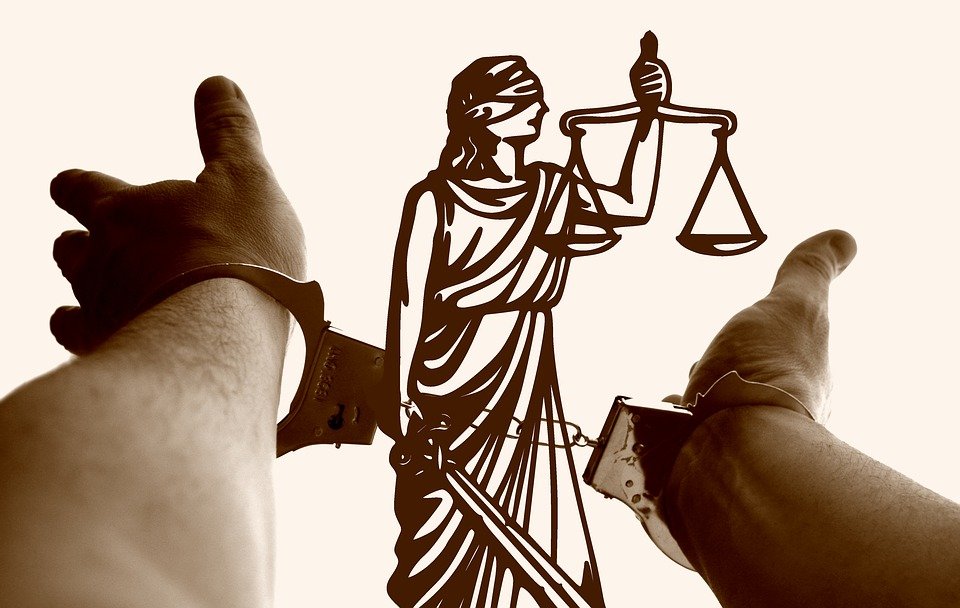All about formal bail application procedures and Guidelines in South Africa.
What is bail?
In any court case when a person is arrested, the accused person remains to be presumed not guilty until the court finds such person guilty. In our law no one may be detained without trial. If an accused is arrested he or she is normally kept in prison or the police cells till the trial is finalised to ensure the presence of the accused at court.
If the person wishes not to be imprisoned pending the finalisation of the trial, he or she may apply to the court to be released on warning or on warning with some conditions attached or on bail (with or without conditions). Bail is the sum of money paid to the court or to the police. Bail is granted more readily when the accused is not a flight risk and can easily be found by law enforcement agencies. There is usually bail conditions set by the presiding officer that the accused must comply with.
Is granting of bail a reflection of the outcome of the case in South Africa?
No, the granting of bail must not be seen to be a reflection of the strength of the State’s case against the accused. Also, bail granted does not imply the acquittal of the accused nor the withdrawal of the case. Even when bail is granted, the accused will still face the charges in a court of law when a trial date is set. Once granted bail it just means that the court is of the view that the accused will stand his/ her trial and is not a flight risk or a danger to the community.

When can the accused person apply for bail in South Africa?
The accused person can apply at any stage of the court proceedings for bail when he or she is before the court. Normally after arrest the accused must be brought before a court within 48 hours of arrest and he or she may then apply to be released on warning or bail if the case is not finalised on that day.
What is the effect of bail granted in South Africa?
By paying bail the accused promises to come to court for future hearings of his or her case and agrees that if he or she does not return, the money paid as bail may be forfeited to the state. In turn for this the accused is then released until the next date(s) that the case is again before court, till the case is finalised.
When the court case is over, the bail money is paid back even if the accused is found guilty. Bail money will however not be paid back, if the accused does not come to court on the day of their court case, or if they break any of their bail conditions such as if they interfere with any witnesses. If an accused do not appear at court the bail will be forfeited to the State unless convincing reasons can be provided as to why the person could not be at the court when he or she was supposed to.
Do you get a receipt when paying bail?
On paying bail, one must get a receipt. Only the person with a receipt for the bail will get the money back after the trial. If released on bail, the accused/defendant will get a written notice. This notice will tell him or her where the court is. It will show the day and the time that he or she must be in court, and it will also show any conditions imposed, for example, that he or she must report every week to the police station.
When asking for bail, of what must the accused convince the judge or magistrate?
Should the case be remanded, the accused has a right to ask the court to be released on bail instead of being remanded in custody until the case finishes. When asking for bail, the accused must convince the presiding officer that he/she –
- will attend all his court hearings and will not run away
- is not a danger to other people
- will not commit further crimes
- will not intimidate any witness in the case.
How does the State decide so quickly on the charges levelled at the accused at the time of the bail application, particularly because at that stage investigations have just started and may be continuing?
The prosecutor goes through the statements in the police docket (complainant’s or the police statements) to establish whether a crime has been committed and whether there is anyone to be blamed, and if so what charges can be brought against the accused.
What is the significance of charging a person with a Schedule 6 offence at the bail hearing stage?
Charging a person with a Schedule 6 offence places more burden on the accused to convince the court that it is not only in the interest of justice, but there are exceptional circumstances that exist to assist him to qualify to be released as such. This burden places the obligation for the accused to be forthcoming with information relating to the circumstances of the commission of the crime, which can be useful to the State during trial. All information presented to court at the bail hearing stage can be, and is often used, during the trial.
What is the difference between premeditated murder and just murder? Why would the State want to prove pre-meditation?
Premeditated murder is the kind of murder that has been planned by the accused before execution or commission. The state must prove that the murder was planned based on available evidence.
What would be classified as exceptional circumstances when applying for bail for a Schedule 6 charge?
It is not easy to establish whether a specific fact is exceptional, but one example will be what is the strength of the state’s case.
If a charge of premeditated murder stands at bail stage, is a lesser charge possible during the trial? (e.g. manslaughter)
Bail is mainly determined on hearsay evidence, because at this stage the amount of evidence available is never sufficient. It happens sometimes that when it comes to the trial itself such hearsay evidence does not surface, or a witness does not give supporting affidavits, in which case then the court can always rule that the murder was not planned and therefore convict on a lesser charge.
A case might move from one court to the other, how is that decided?
Moving a case from one court to depends on the circumstances; for example –
- Whether the court before which the matter is appearing has jurisdiction over the matter
- Whether the presiding officer dealt with the bail application and heard the facts of the case before
- Whether the court has jurisdiction with regard to sentence.
Is it usual to have long and protracted bail proceedings?
The duration of a bail hearing depends on the extent of the charges that the accused is facing or the cross-examination of witnesses. It may also be influenced by the number of accused and/or the number of counts for which the accused is/are charged.
What is taken to account and who makes the assessment to determine flight risk probability?
The court should normally look into-
- whether the accused has a passport,
- whether he has relatives outside the country,
- whether he has the means (funds) to flee etc.
What is the longest a bail hearing has taken? Is there a limit to the time it can take?
It depends on whether the accused or the defence or the prosecution wish to call witnesses and the number of witnesses they intend calling.
On what condition can live media broadcasts be barred from the court?
This will depend on whether the accused will be prejudiced if there is a live broadcast of the proceedings and whether the state feels that it might compromise the investigation. Anyone of the parties can raise an objection, and the court will look into whether it is in the public interest that such proceedings be carried on live broadcasts. The final order is made by the Presiding Officer after consideration of such issues, but not limited to those mentioned above.
Also refer to the FAQ on Bail by the NPA: http://www.npa.gov.za/ReadContent530.aspx
Did You See These?
- Reasons to File a Complaint Against an Attorney in South Africa
- Why Both Men and Women Could Become Victims of Gender-Based Violence
- Best Antenuptial Contract Attorneys in Johannesburg
- What is Needed to Renew Driver’s Licence?
- Law Firms Offering Articles for 2025 and 2026
- Can You Get a Criminal Record for Speeding in South Africa?
- African Legal Approach to Law and Conflicts
- Professional Driving Permit (PrDP) Requirements in SA
Disclaimer
The content presented on this website was originally created by the team at Legal Advice. All information related to legal firms and legal matters is based on "User Submitted Data", and or publicly accessible data available from more than one online sources. Should you have any concerns or disputes about the information provided, please feel free to reach out to us at hello@legaladvice.org.za.

